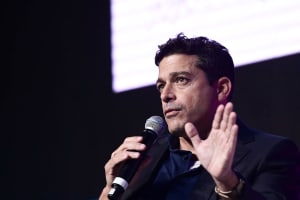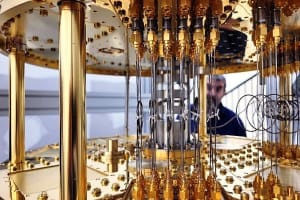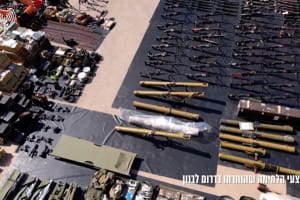Iran’s nuclear sites ‘should not be attacked,’ UN nuclear watchdog chief says during Iran visit
Nuclear watchdog seeks to settle disputes with Iran before Trump inauguration

Iran’s nuclear installations “should not be attacked,” UN nuclear watchdog IAEA (International Atomic Energy Agency) chief Rafael Grossi declared while on a two-day visit to the Islamic Republic, during which he is set to visit the regime's Fordow and Natanz nuclear sites.
“I say this with regards to Iran… nuclear installations should not be attacked,” he said at a joint news conference with Iran’s nuclear chief Mohammad Eslami on Wednesday.
Grossi talked with Iranian Foreign Minister Abbas Aragchi, writing on X that they had an “indispensable meeting” at the start of his trip.
Started my two-day visit to Iran with an indispensable meeting with Iranian Foreign Minister @araghchi. pic.twitter.com/c8Fg9LqqqD
— Rafael MarianoGrossi (@rafaelmgrossi) November 14, 2024
The watchdog chief’s comments were widely seen as a response to Israel’s new Defense Minister Israel Katz, who on Monday had noted during his first meeting with the IDF’s General Staff, “Iran today is more exposed than ever to damage to its nuclear facilities. There is a chance of achieving the most important goal, to thwart and remove the threat of annihilation from hanging over the State of Israel.”
Grossi emphasized that achieving results in the talks with Iran was crucial to avoid a wider war. “It is indispensable to get, at this point in time, to some concrete, tangible, visible results that will indicate that this joint work is improving the situation… and in a general sense is moving us away from conflict and ultimately war.”
The IAEA has been pushing to settle several points of dispute regarding the nuclear program with the Iranian regime before Trump’s inauguration in January. These include the cooperation to supervise nuclear sites, and settling questions regarding uranium finds at undeclared sites.
The new administration is widely expected to return to the “maximum pressure” campaign and reimpose stringent sanctions on the regime. In addition, the IAEA is reportedly under pressure from France, Germany and the UK to push a new resolution against the regime as a way to push it to increase cooperation.
Iran’s nuclear chief Eslami, for his part, said Iran would take “immediate countermeasures” against any that harms its nuclear program. “Any interventionist resolution in the nuclear affairs of the Islamic Republic of Iran will definitely be met with immediate countermeasures,” he said.
Earlier Monday, Israel’s new Foreign Minister Gideon Sa’ar had emphasized that preventing Iran from getting a nuclear weapon is “the most important question by far, for the future of this region, for the security of the State of Israel.”
Sa’ar also said that this issue was the most important topic of discussion between Prime Minister Benjamin Netanyahu and U.S. President-elect Donald Trump. “We see eye-to-eye on the Iranian threat in all its aspects, and on the dangers they reflect,” Netanyahu said after the latest phone call.
“President Trump made it clear during the time of his electoral campaign that he understands very well the dangers of that nuclear Iranian project,” Sa’ar confirmed. “I’m sure that we will be able to work together to stabilize the region, in order to guarantee the future of the region.”

The All Israel News Staff is a team of journalists in Israel.













